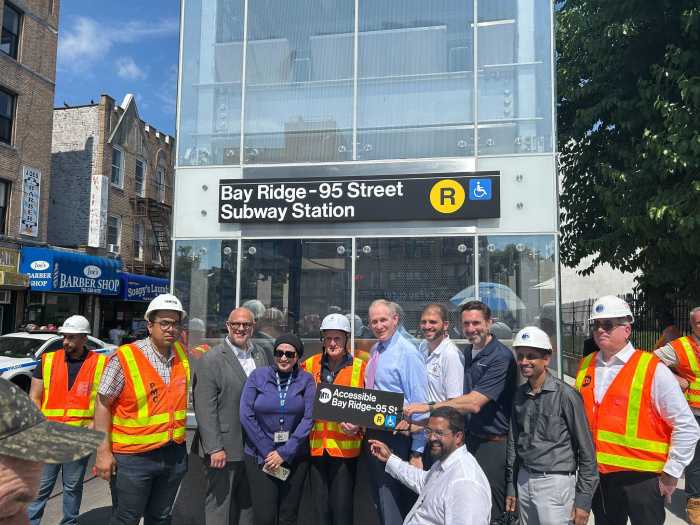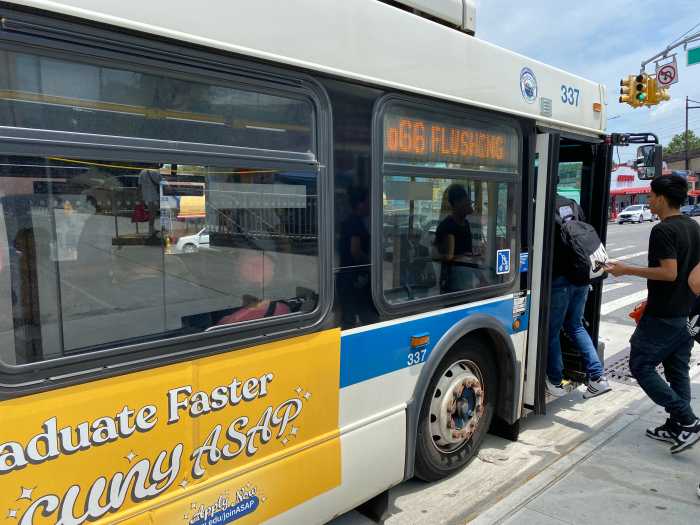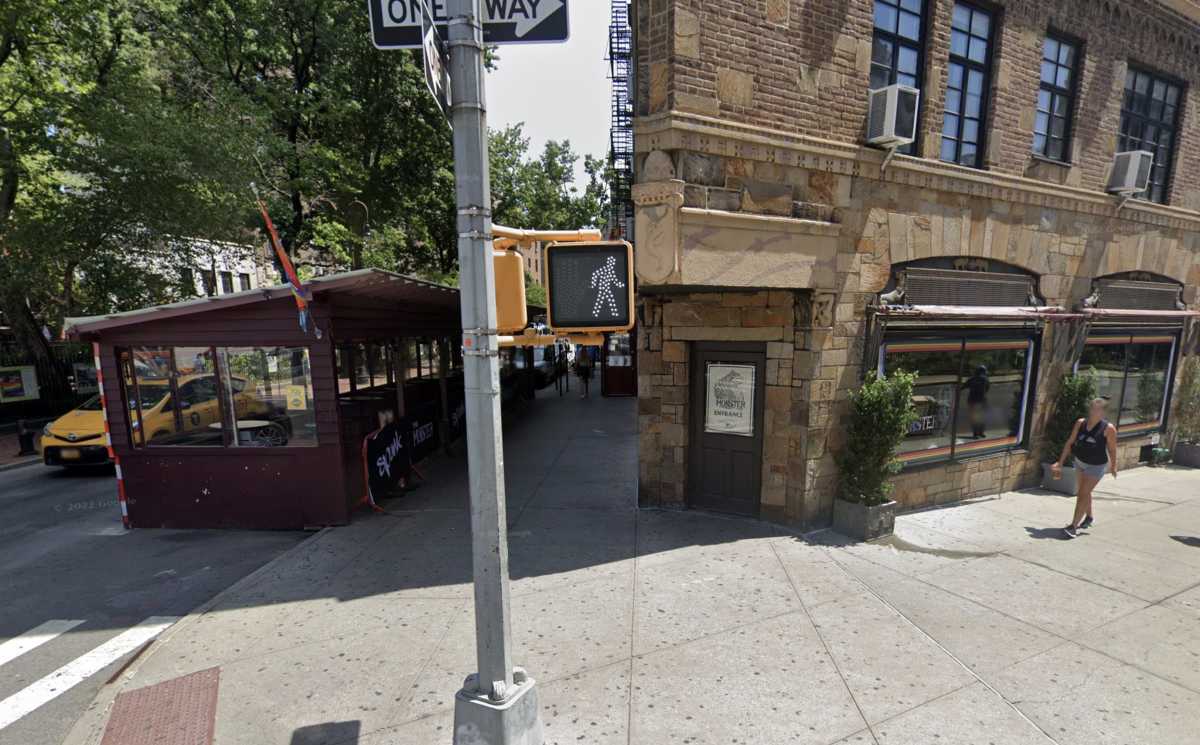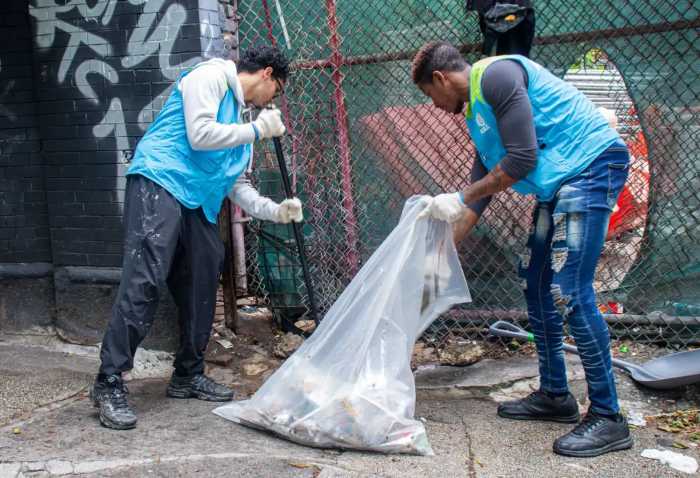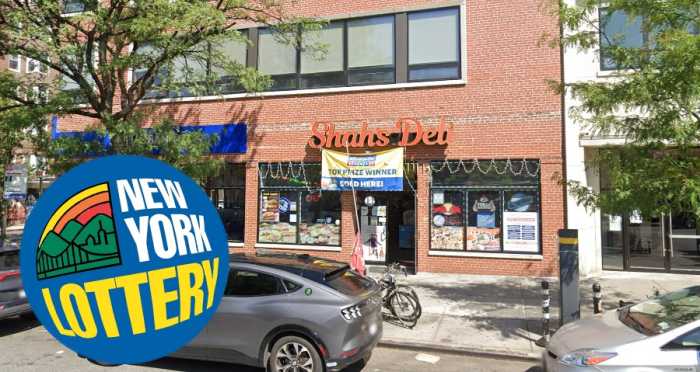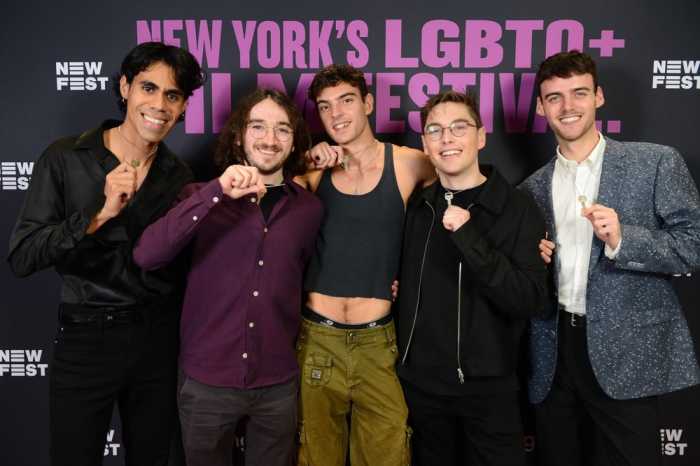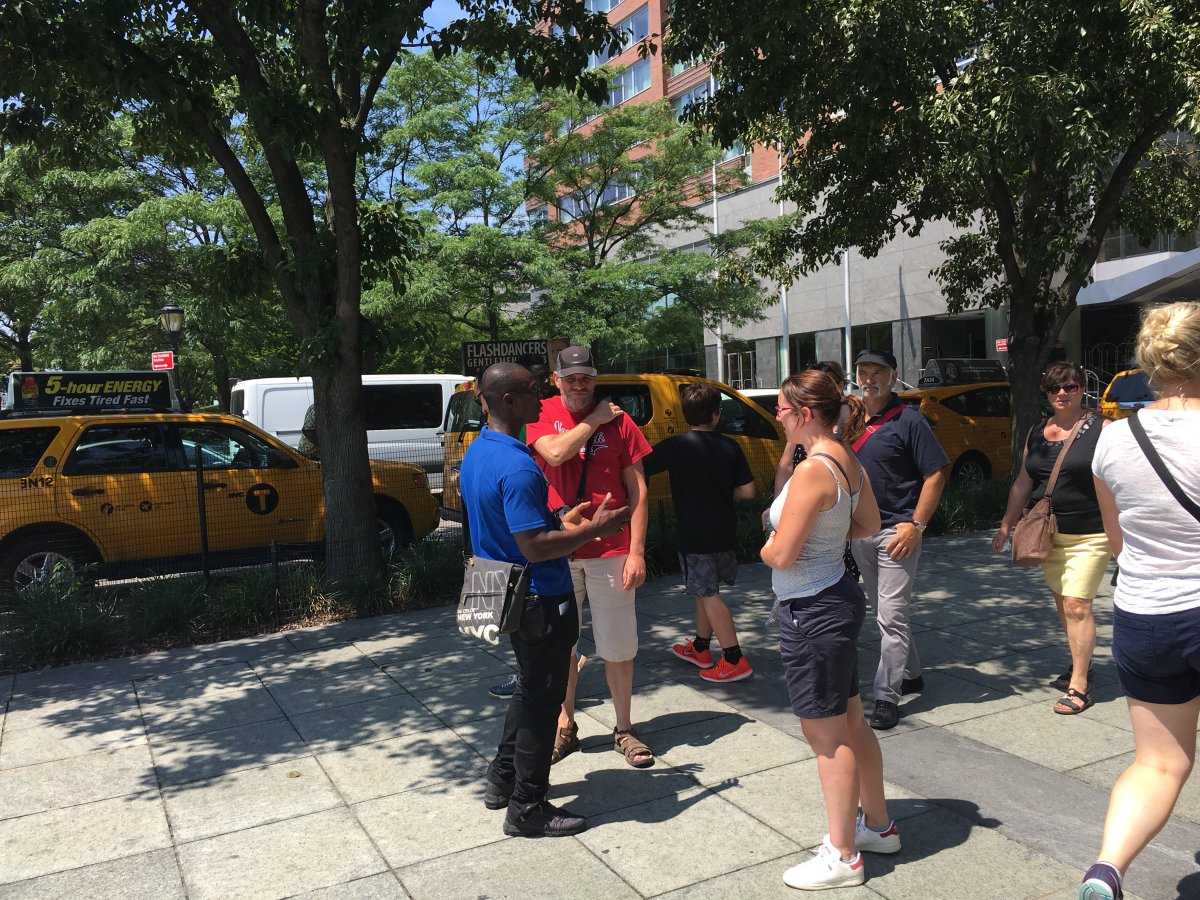
Locals complain that aggressive ticket vendors remain a nuisance Downtown, even after the crackdown that followed a shooting in April.
BY COLIN MIXSON
Legislators, police, and the de Blasio Administration have all taken steps to crack down on the rash of unauthorized ticket sellers plaguing Lower Manhattan, but the seedy business continues to thrive on the ignorance of Downtown tourists, and lawmakers must resort to harsh legal measures to drive off the unwanted vendors, according to the president of the Downtown Alliance.
“The problem has gotten worse,” said Jessica Lappin. “We’re at a point where we need a limit on the number of ticket sellers, or an outright ban.”
Ticket sellers proliferate in the heavily trafficked tourist areas around Downtown’s waterfront, having expanded from their original base near the Staten Island Ferry Terminal to areas including Bowling Green, the World Trade Center, the 9/11 memorial, and most recently, Battery Park City’s Pier A Plaza.
Aside from illegally hawking tickets at outrageous prices — one ticket seller claiming to work for the legitimate Statue Cruises, which sells ferry rides to Ellis and Liberty islands for $18.50, offered this reporter a ride out to Lady Liberty marked up to $35 — the vendors have earned a reputation for aggressive tactics and violence.
Last year, a ticket vendor sucker-punched a 33-year-old tourist for refusing to purchase a ticket to the Statue of Liberty offered by the assailant’s wife, leaving him with a fractured skull.
And in April, a quarrel between competing ticket sellers left two people wounded after one of the vendors drew a pistol and started shooting.
Even when violence isn’t a factor, sellers are often so pugnacious that tourists will dig into their wallets rather than seek a better deal elsewhere, according to Lappin.
“They ambush people, engage them in conversation, and they’re aggressive enough that half the time they don’t even know what they’re buying,” she said.
To curb the nuisance industry, the City Council passed a law requiring individual ticket sellers to register with the Department of Consumer Affairs and display licenses while on the job — a measure that was intended to aid law enforcement and help the city identify bad actors.
But the new regulation’s effects are mild at best, with many vendors choosing to forego registration despite penalties that include stiff fines, and the forfeiture of their tickets to law enforcement, according to the head of security at Battery Park City.
“There’s guys who wear the ID cards, and guys who don’t,” said Patrick Murphy, who manages Allied Universal security guards in the neighborhood, and has been battling ticket sellers operating around Pier A.
And as legislation and enforcement adapts to oppose the industry, vendors are likewise developing new tricks to throw off suspicion from both police and tourists, with unregistered sellers wearing lanyards that would appear to hold the DCA-issued identification, but often contain some other card, according to Lappin.
“They’re using imitation licenses,” she said. “If they put the lanyard on they think it makes them look more official.”
Ticket sellers have also begun disguising themselves by wearing red shirts similar to Downtown Alliance employees, and loitering around information kiosks operated by the BID, Lappin recounted.
“Some of them are purposefully wearing outfits that look a lot like Downtown Alliance uniforms in an effort to be more tricky than they already were,” the Alliance president explained.
Murphy has noticed a similar trend around Pier A, but with former workers of the legitimate Statue Cruises wearing their old uniforms while hawking overpriced fares.
“There are people who have been cut loose from a company but they’re still wearing the uniform,” Murphy said.
At Pier A Plaza, Murphy instructs his security officers to shoo off vendors when they encroach onto Battery Park City property, where the Battery Park City Authority has forbidden them to operate.
But jurisdictional challenges make the effort a near constant battle, and for vendors to evade guards is a simple matter of stepping into Battery Park, the surrounding streets, or the Greenway bike path, all of which are on city property and beyond the purview of Allied Universal’s security contract.
Murphy doesn’t have the manpower to maintain a constant presence at the pier, and whenever the guards turn their back or continue with their patrol, the vendors quickly return.
“It’s a constant sweeping motion back and forth to keep them off that area,” said Murphy. “It’s a waste of manpower.”
Councilwoman Margaret Chin, who co-sponsored the legislation requiring vendors register with the city, denied that the problem has gotten worse since the law took effect, and said the efforts of legislators like her and increased enforcement by the First Precinct following April’s shooting have made headway in the effort to curb the rogue ticket industry.
“I think we’re making some dents,” Chin said. “I think the fact that the First Precinct has been very vigilant in terms of sending officers down for patrol, and DCA is following through and staying on top of people applying for licenses, that things have calmed down a little bit.”
The councilwoman said that she’s open to suggestions regarding legislative solutions to the issue, but suggested that the key to ensuring compliance is enforcement, and that she’s met with officers of the First Precinct, who have stationed plain clothes officers around known hot spots following April’s shooting.
“I think we’re always open to suggestions in terms of how we can make things better legislatively… But the main thing is enforcement,” said Chin. “How do we make sure they are following the rules, and how do we make sure the police department and DCA are making sure they’re following the rules?”
If there’s any silver lining to April’s shooting, it’s that police are now viewing the ticket industry Downtown as a priority, according to Murphy.
“Law enforcement is down there, and they know that we’re active down there, and they support us,” he said. “After the shooting, it’s heightened the awareness that something has to be done.”
The First Precinct did not respond to repeated calls for comment.



